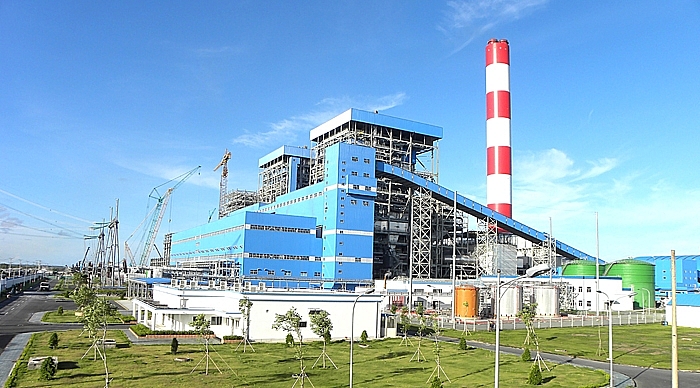South Korean power solution providers eye Vietnam
 |
| South Korean companies are coming to Vietnam to discover opportunities in power generation |
South Korea’s power 0market is approaching the point of saturation with little room for growth left. Meanwhile, Vietnam is still focusing on developing its power grid, including hydro-, thermal-, and renewable power to deal with overloaded power transmission lines and sub-stations. Furthermore, South Korean corporations win almost all engineering procurement and construction (EPC) contracts for power projects in Vietnam, especially for thermal power projects like Duyen Hai, Song Hau, Na Duong, Vinh Tan, and Pha Lai.
Seeing this attractive opportunity, South Korean power and green energy firms are approaching Vietnam to look for opportunities to become vendors for EPC contractors. These enterprises provide either comprehensive or issue-specific solutions, including feasibility study, operation and maintenance, erection and commissioning, and engineering and design.
While talking with VIR at the Vietnam-Korea Business Corporation for Power Industry 2019 organised by the Vietnam Chamber of Commerce and Industry (VCCI) in Hanoi on August 26-28, Seung Sup Roh, managing director of the System Development Division of E2S Co., Ltd., said, “Before participating in this event, we made a careful study of the Vietnamese power market and see that the demand for power plant monitoring, alarms, and control equipment is large. The company also offers comprehensive services about design, installation, and technology transfer in order to ensure stable operations for plants.”
Numerous companies also offer operating and maintenance services for power plants. Kim Kwang-Kyun, director of the power plant division of HLB Power Co., Ltd., said, “HLB Power provides machinery and equipment for numerous thermal power plants in Vietnam, including Song Hau, Duyen Hai, and Vinh Tan via co-operating with EPC contractors like Doosan, Samsung C&T, and Hyundai Engineer and Construction.
When entering Vietnam, the company expected to establish relations with EVN and its local sub-contractors to provide operation and maintenance services for existing power plants, while simultaneously discussing upcoming power projects.”
There are enterprises participating in the event who are looking to popularise nuclear power in Vietnam due to its low cost and environmentally friendliness. Myung Rea Cho, executive director of sales of International Electric Co., Ltd., told VIR about the advantages of nuclear power, highlighting the selling price which is much lower than that of hydro and thermal energy. The selling price in Vietnam is VND189,000 per kV while it would only be VND1,800 per kV for nuclear power – not to mention the benefits to the environment. Besides, the operation will not depend on external factors like natural resources, or solar, wind, and water.
“Technology and machinery needed for nuclear power generation are available. In fact, nuclear power continues to gain ground in industrial powers and continues to spread to developing countries where electricity demand is rapidly increasing,” said Cho.
With accelerating industrialisation and economic modernisation, energy demand is predicted to increase by more than 10 per cent annually during 2016-2020 and by 8 per cent per annum during 2021-2030.
The demand will increase from 86 terawatt-hours (TWh) in 2010 to 265-278TWh in 2020 to 572-632TWh in 2030. To meet the growing demand, Vietnam needs 60,000MW of electricity by 2020, 96,500MW by 2025, and 129,500MW by 2030. To do so, the country needs to increase its installed capacity by 6,000-7,000MW annually and spend close to $148 billion by 2030.
What the stars mean:
★ Poor ★ ★ Promising ★★★ Good ★★★★ Very good ★★★★★ Exceptional
 Tag:
Tag:
Related Contents
Latest News
More News
- VinaCapital launches Vietnam's first two strategic-beta ETFs (February 26, 2026 | 09:00)
- PM sets five key tasks to accelerate sci-tech development (February 26, 2026 | 08:00)
- PM outlines new tasks for healthcare sector (February 25, 2026 | 16:00)
- Citi report finds global trade transformed by tariffs and AI (February 25, 2026 | 10:49)
- Vietnam sets ambitious dairy growth targets (February 24, 2026 | 18:00)
- Vietnam, New Zealand seek level-up in ties (February 19, 2026 | 18:06)
- Untapped potential in relations with Indonesia (February 19, 2026 | 17:56)
- German strengths match Vietnamese aspirations (February 19, 2026 | 17:40)
- Vietnam’s pivotal year for advancing sustainability (February 19, 2026 | 08:44)
- Strengthening the core role of industry and trade (February 19, 2026 | 08:35)


























 Mobile Version
Mobile Version